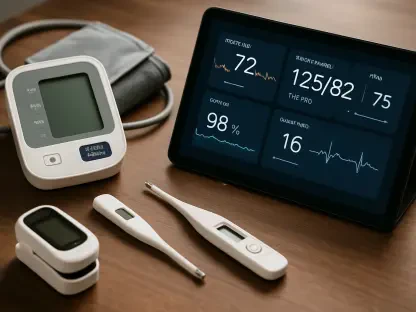Imagine a world where a devastating diagnosis like Alzheimer’s disease could be caught early enough to change its course, offering hope to millions of families grappling with uncertainty. This vision is becoming a reality in Duluth, Minnesota, where a local health system has introduced a pioneering diagnostic tool designed to detect Alzheimer’s at its earliest stages. Affecting over 7 million Americans, Alzheimer’s is a progressive condition that often goes undiagnosed until symptoms are severe, limiting options for intervention. The new test, offered exclusively at a downtown campus in the Northland region, targets amyloid plaques—abnormal protein deposits in the brain that are a key indicator of the disease. This advancement promises not only faster and less invasive testing but also eliminates the need for patients to endure long waits or travel far for specialized diagnostics. It’s a significant step forward in transforming how this challenging condition is approached, bringing cutting-edge care directly to the community.
Revolutionizing Early Detection with Advanced Imaging
At the heart of this groundbreaking development is the use of sophisticated imaging technology to identify Alzheimer’s hallmarks long before severe symptoms emerge. The test employs a combination of PET (Positron Emission Tomography) and CT (Computed Tomography) scans, paired with a safe radioactive tracer known as Amyvid, which binds to amyloid plaques and makes them visible during imaging. The procedure stands out for its efficiency, requiring just a 40-minute circulation period after the tracer injection, followed by a quick 10-minute scan, with the entire visit typically completed in under an hour. For patients showing elevated levels of these plaques, the results can open doors to FDA-approved therapies delivered through infusions, aimed at breaking down the harmful deposits. Tailored to individual scan outcomes, these treatments represent a personalized approach to care, marking a shift from generic symptom management to targeted disease modification in the fight against cognitive decline.
Paving the Way for a New Era in Alzheimer’s Care
The introduction of this diagnostic tool signals a broader transformation in how Alzheimer’s disease is managed, offering a glimpse into a future where early intervention could redefine the illness as a controllable condition. By detecting amyloid plaques at an earlier stage, neurologists can confirm eligibility for innovative treatments that may slow the progression of cognitive decline, providing a lifeline to patients and their families. Experts in the field, including neurologists at the forefront of this initiative, have emphasized the profound hope this brings through timely action, moving beyond merely addressing symptoms to altering the disease’s trajectory. Beyond individual benefits, this advancement positions the Northland region as a leader in neurological care, reflecting a commitment to adopting cutting-edge solutions. Looking back, the launch of these scans marked a turning point, setting a precedent for proactive strategies that could inspire similar innovations across the healthcare landscape, ultimately easing the burden on countless lives affected by Alzheimer’s.









